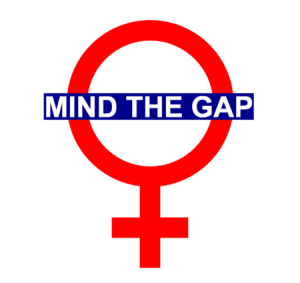Only 200 years to go until equal pay

Unequal pay for men and women doing the same job has been illegal in the UK for 40 years,
Yet the World Economic Forum calculates that, at current rate of progress, the pay gap will not be closed until 2235.
In the UK, the gap gap remains at 8.6% for full-time employees. In the US, women earn 81 cents to every dollar a man makes. Yet, perhaps not that surprisingly, a recent survey revealed that nearly half of men, and a quarter of women, do not believe in the pay gap.
Equal Pay Day brought about a plethora of news articles on which companies, roles and areas are falling behind on equal pay: over one hundred NHS trust have a larger pay gap than last year, the gender
pay gap has also widened in a third of government department, and the pay gap “may have increased” across the whole of Wales. Commentators have suggested that Brexit has been partially responsible for this, bumping equal pay down in the list of priorities. The EU has also been a big supporter and propeller of equal pay:,taking the UK to court in 1983 to secure the law for equal pay for work of equal value, and establishing plans to provide employees with more power to request information on equal pay and sanction companies.
Unsurprisingly, research indicates that difference in occupation, experience and hours explain and drive discrepancies in pay. These reasons aren’t simple explainers, as the fact that women work fewer hours, have less experience and dominate some lower paying fields is itself a result of ingrained discrimination. Women are more often the primary care giver to children and elderly relatives than men, and are more likely to encounter harassment or hostility entering male-dominated fields with greater pay. Aside from these known reasons, two thirds of the UK gender pay gap remains “unexplained.”
It’s not just gender: people of colour are frequently paid less than their white counterparts. A Freedom of Information request submitted by the BBC in 2018 found that on average Russel Group academics of a minority descent are paid 26% less than their white colleagues.
Increasing awareness of discrepancies and providing statistical evidence is key in encouraging cross-sector change and decreasing claims that people are “blissfully unaware” of the discrimination happening around them. Studies have found that women are more likely to ask for a lower salary than men, and only 32% of women negotiate pay, compared to 48% of men. Other studies in the US have suggested that around 7% of women attempt to negotiate on salary, compared to 57% of men. In 2015, Reddit CEO Ellen Pao boldly attempted to rewrite the rules by banning salary negotiations.
UK companies of over 250 employees are now legally obliged to publish their gender pay gap figures, empowering employees to press for pay equality. Similar laws have been passed in Germany and Canada.
Companies who do not get their houses in order will soon start to suffer. Why would a talented young graduate join a company like Dow Jones, which has a 28% pay gap (increased from 20% last year), when she could join other businesses such as Newsquest, which has a positive difference? Moreover, in an age when consumer activism is spread wide and far through social media activity, how long will it be before women start to boycott brands which discriminate against them?
In the age of #metoo, when issues around gender and diversity are in the spotlight, companies are increasingly realising that inequality is bad for business.
enquiries@trippassociates.co.uk
Martin Tripp Associates is a specialist executive search consultancy. We work globally across the media, information, technology and entertainment sectors, and with some of the world’s biggest brands on senior communications, digital, marketing and technology roles. Feel free to contact us to discuss.